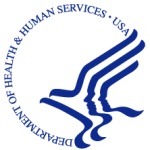- Industry: Government
- Number of terms: 33950
- Number of blossaries: 0
- Company Profile:
United States Department of Health and Human Services, Radiation Emergency Medical Management
A condition marked by drowsiness and an unusual lack of energy and mental alertness. It can be caused by many things, including illness, injury, or drugs.
Industry:Health care
A protein found in skin and eye cells that make melanin (a pigment that gives color to the skin and helps protect it from damage by ultraviolet light). People with certain changes in the gene for melanocortin 1 receptor have a higher risk of developing melanoma (skin cancer that begins in melanocytes). Also called MC1R and melanotropin receptor.
Industry:Health care
Treatment given as a first step to shrink a tumor before the main treatment, which is usually surgery, is given. Examples of neoadjuvant therapy include chemotherapy, radiation therapy, and hormone therapy. It is a type of induction therapy.
Industry:Health care
A condition in which antioxidant levels are lower than normal. Antioxidant levels are usually measured in blood plasma.
Industry:Health care
A drug used to treat or prevent seizures or convulsions that may be caused by epilepsy, brain surgery, or treatment for brain cancer. It is a type of anticonvulsant agent. Also called Dilantin.
Industry:Health care
A doctor who specializes in treating diseases of the lungs. Also called pulmonologist.
Industry:Health care
An aggressive (fast-growing) cancer that forms in tissues of the lung and can spread to other parts of the body. The cancer cells look small and oval-shaped when looked at under a microscope.
Industry:Health care
Abnormal cells are found in tissue lining the inside of the vagina (birth canal). These abnormal cells may become cancer and spread into nearby normal tissue.
Industry:Health care
A drug that blocks DNA synthesis and may prevent tumor cell growth. It is being studied as a treatment for cancer.
Industry:Health care
A substance being studied in the treatment of breast cancers caused by mutations (changes) in the BRCA1 and BRCA2 genes. It is also being studied in the treatment of other types of cancer. It blocks an enzyme involved in many functions of the cell, including the repair of DNA damage. DNA damage may be caused by normal cell actions, UV light, some anticancer drugs, and radiation used to treat cancer. Veliparib may cause cancer cells to die. It is a type of poly(ADP-ribose) polymerase inhibitor. Also called ABT-888 and PARP-1 inhibitor ABT-888.
Industry:Health care
